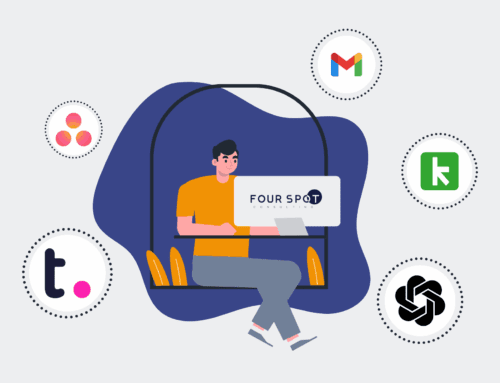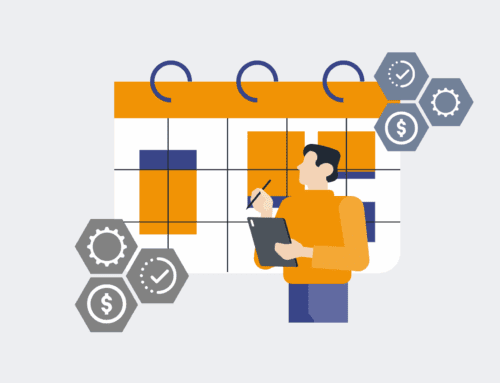HR Tech Stack Optimization: When to Call an Automation Consultant
In today’s fast-paced business landscape, the efficiency of your HR operations is no longer just about compliance and payroll; it’s a strategic lever for growth. A well-optimized HR tech stack can transform recruitment, onboarding, employee engagement, and data management. Conversely, a disjointed, underutilized, or poorly integrated system becomes a significant drag, costing time, money, and valuable human potential. The question isn’t whether you need HR technology, but when your current setup is crying out for expert intervention—specifically, when it’s time to call in an automation consultant.
Many organizations find themselves at a crossroads. They’ve invested heavily in various HR platforms, from Applicant Tracking Systems (ATS) and HRIS solutions to performance management tools and learning management systems. Yet, despite these investments, the promise of seamless operations remains elusive. Data silos persist, manual tasks proliferate, and the HR team is bogged down in administrative busywork rather than focusing on strategic initiatives. This is often the first clear signal that an external perspective, one deeply versed in automation and integration, is not just beneficial but essential.
Recognizing the Tipping Point: Signs Your HR Tech Stack Needs Help
The indicators that your HR tech stack is underperforming are often subtle at first, escalating into undeniable bottlenecks. One primary sign is the prevalence of manual data entry and redundant tasks across different systems. If your recruiters are manually transferring candidate information from LinkedIn to your ATS, and then again from the ATS to the HRIS upon hiring, you have a massive automation gap. Each manual touch point introduces the risk of human error, slows down critical processes, and diverts high-value employees from more impactful work.
Another tell-tale sign is a lack of cohesive data. If you can’t generate a single, unified report on employee lifecycle data—from recruitment source to performance metrics—without significant manual aggregation, your systems aren’t talking to each other. This fragmentation prevents strategic insights, making it impossible to truly understand the ROI of your HR initiatives or identify critical trends. Furthermore, if your current HR tech stack feels more like a collection of isolated tools rather than an integrated ecosystem, you’re likely leaving significant value on the table.
The inability to scale rapidly is another critical indicator. As your business grows, your HR processes must keep pace. If onboarding 20 new employees takes the same manual effort as onboarding two, your HR tech stack is a constraint, not an enabler. This scalability challenge extends to adapting to new regulatory requirements, rolling out new HR programs, or even simply updating employee information across multiple systems.
Beyond In-House Capabilities: The Automation Consultant’s Edge
While internal HR and IT teams are invaluable, they often face limitations when it comes to deep-seated automation and integration challenges. Internal teams are typically focused on maintaining existing systems, managing day-to-day operations, and responding to immediate needs. They may lack the specialized expertise in advanced automation platforms like Make.com, or the holistic view required to design and implement a truly interconnected HR tech ecosystem, often referred to as an “OpsMesh.”
This is precisely where an automation consultant, like 4Spot Consulting, brings unparalleled value. An external consultant offers an objective, unbiased assessment of your existing HR tech landscape. They aren’t tied to legacy systems or internal politics, allowing them to identify inefficiencies and opportunities that internal teams might overlook. Their expertise lies not just in knowing the various HR technologies, but in understanding how to strategically connect them, automate workflows, and leverage AI to amplify their capabilities.
A consultant initiates the process with a strategic audit, akin to our OpsMap™ diagnostic. This isn’t just a technical review; it’s a deep dive into your business processes, pain points, and strategic objectives. The goal is to uncover where manual work is draining resources, where data is trapped, and where automation can deliver the most significant ROI. This strategic, outcome-driven approach differentiates true consultants from mere implementers.
Strategic Integration and Future-Proofing
The role of an automation consultant extends beyond fixing immediate problems; it’s about building a resilient, future-proof HR infrastructure. They excel at integrating disparate systems, creating a “single source of truth” for all HR data. This eliminates redundant data entry, improves data accuracy, and provides real-time insights for better decision-making. Imagine a system where a new hire’s information automatically flows from your ATS to your HRIS, payroll, benefits platform, and even your learning management system, all without a single manual intervention.
Moreover, consultants bring expertise in leveraging low-code/no-code platforms and AI tools to enhance existing HR tech. They can design automated workflows for everything from resume parsing and interview scheduling to employee feedback collection and offboarding. By introducing AI-powered solutions, they can automate routine inquiries, personalize employee experiences, and even assist in talent acquisition by identifying best-fit candidates more efficiently.
Ultimately, calling an automation consultant for your HR tech stack optimization is a strategic investment. It signifies a readiness to move beyond reactive problem-solving to proactive, scalable growth. It’s when you recognize that the limitations of your current HR operations are hindering your broader business objectives, and that specialized expertise is required to unlock the full potential of your technological investments. The outcome isn’t just a more efficient HR department, but a more agile, data-driven, and ultimately more profitable organization.
If you would like to read more, we recommend this article: Strategic HR’s New Era: The Indispensable Role of AI Automation Consultants







